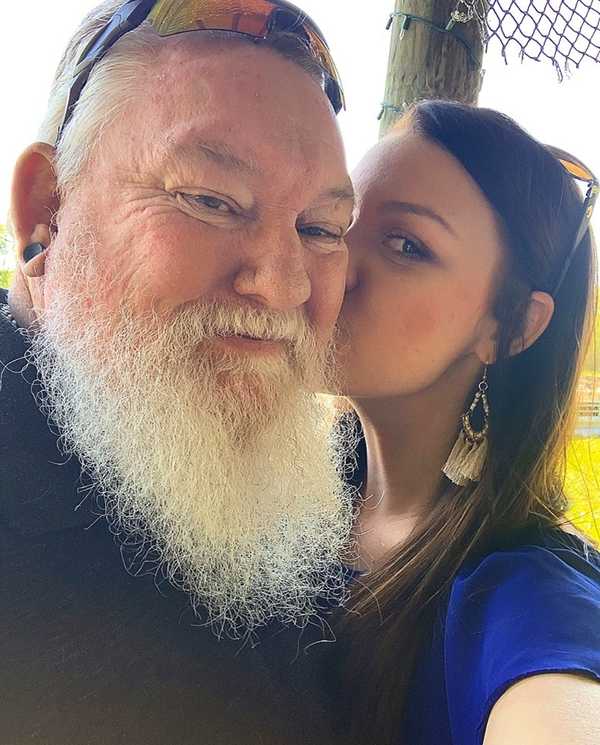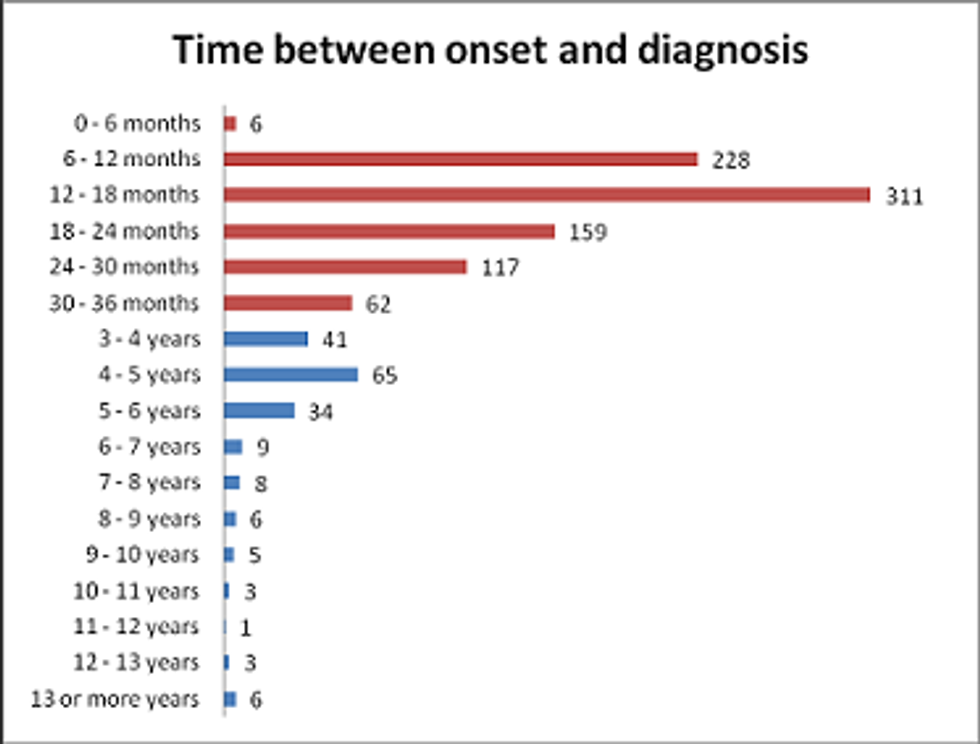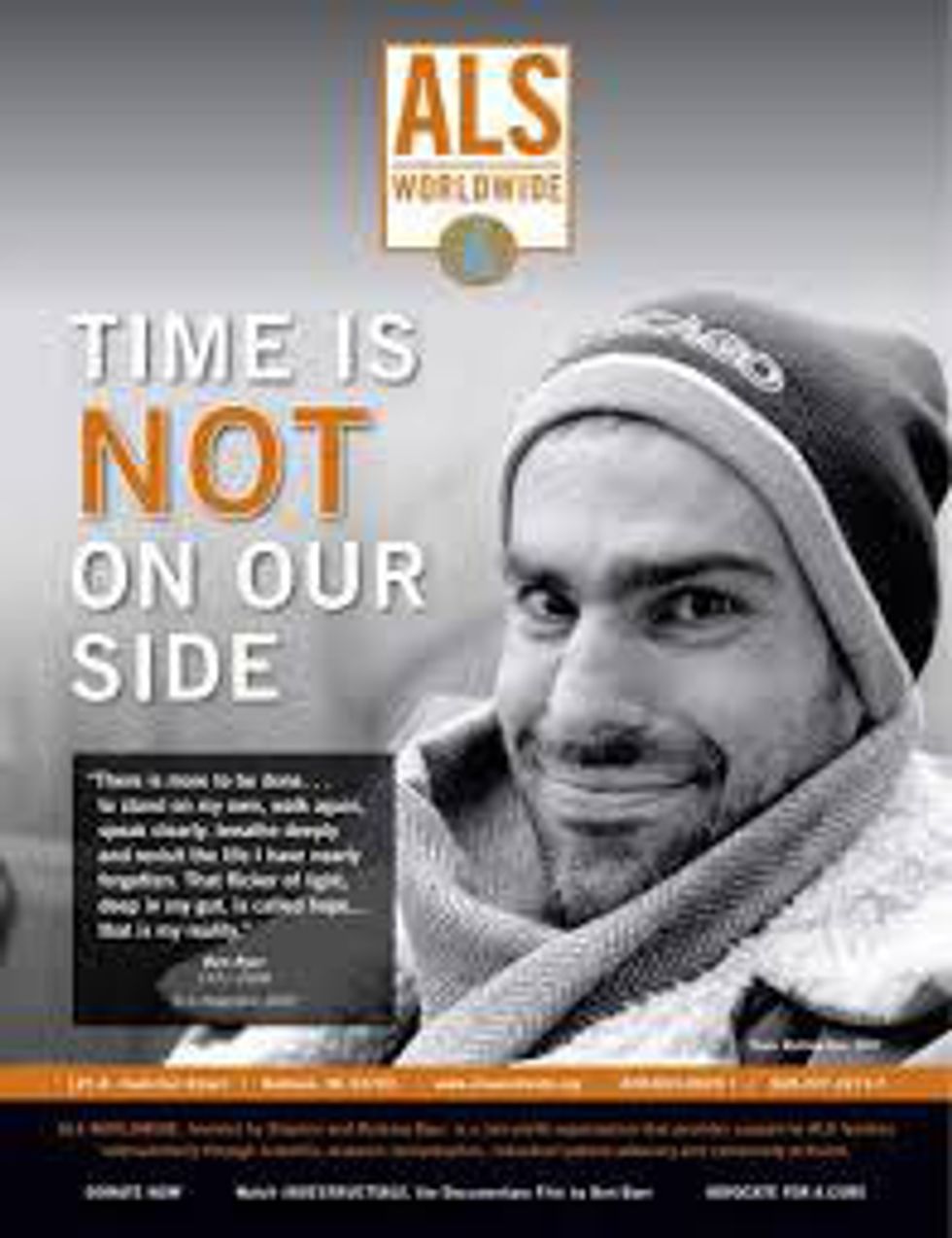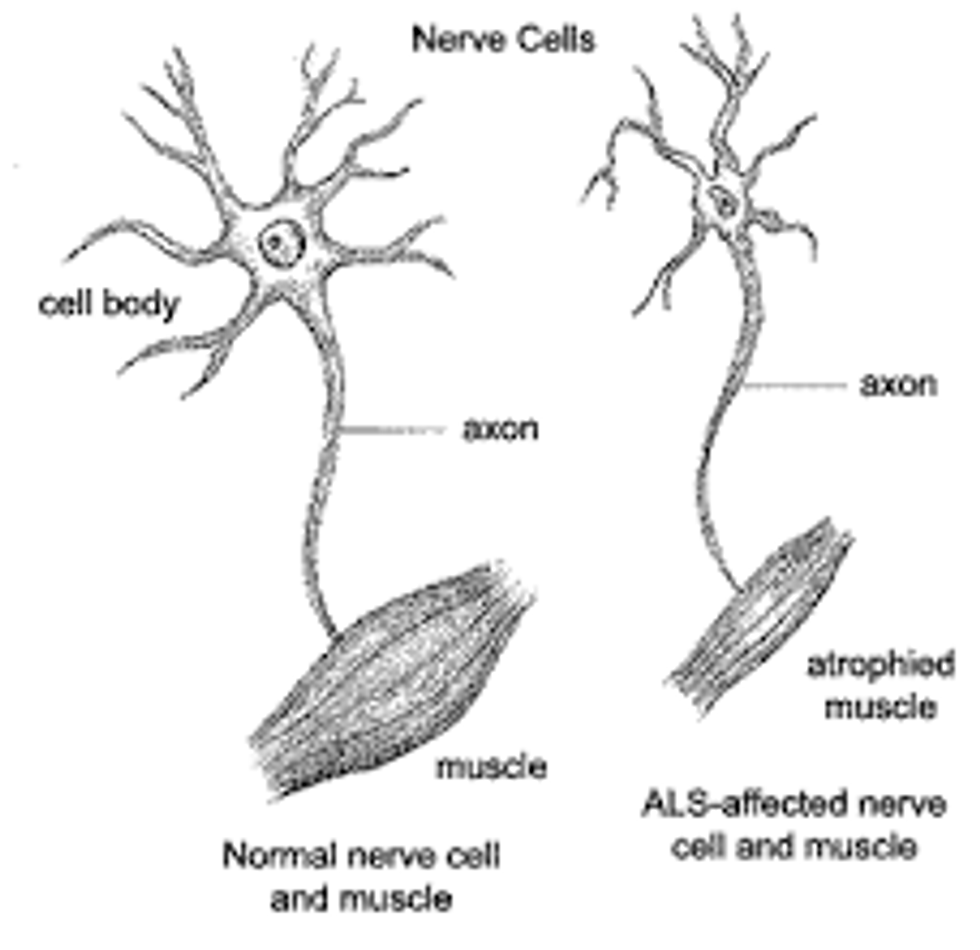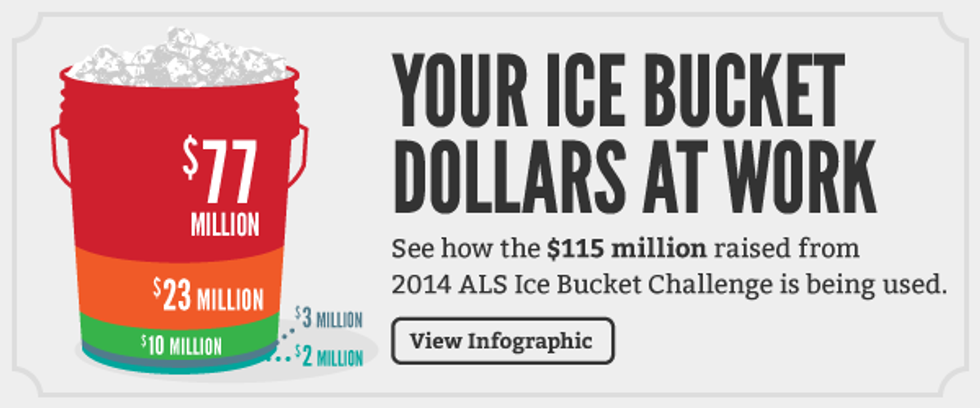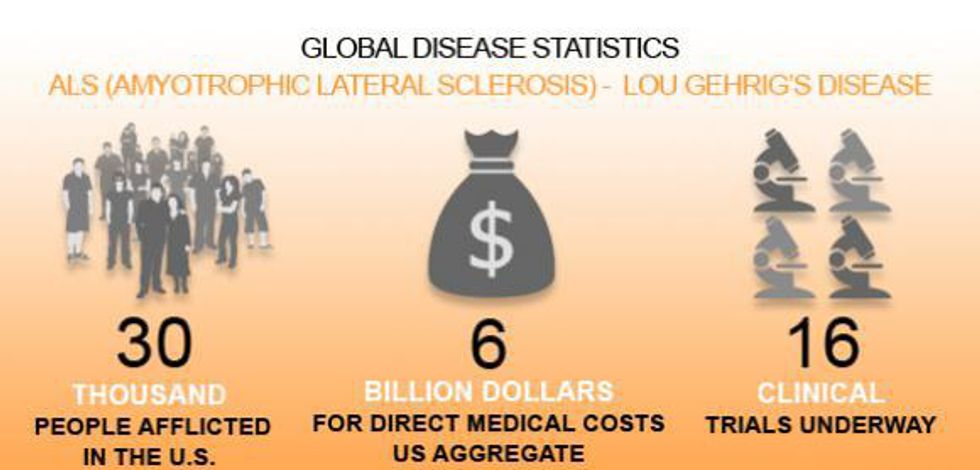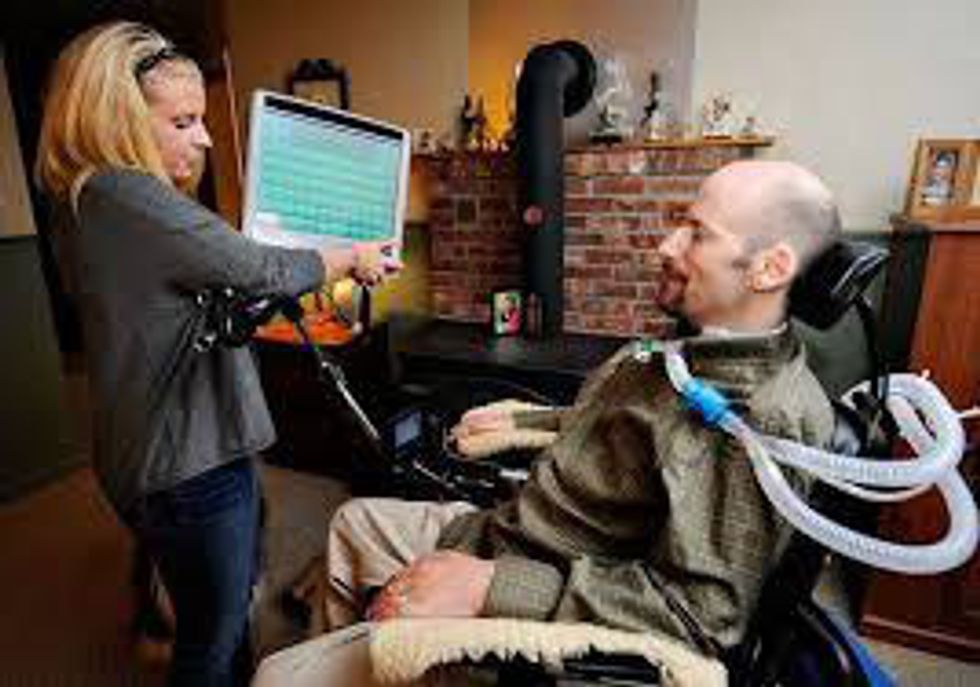Before my mother was diagnosed with amyotrophic lateral sclerosis, I had no idea what ALS stood for. Other than what I gleaned from reading "Tuesdays With Morrie" in 9th grade, I was unaware of the horrors that accompanied Lou Gehrigs Disease. Blissfully unaware. It's been nearly a year since my family and I were devastated by my mom's diagnosis, and the lessons we've learned along the way have been heartbreaking. It has, however, given me a new cause to be passionate about. Since May is ALS Awareness Month, here are 15 facts about this horrendous disease from the ALS Association that I will shout from the rooftops until there is a cure.
1. ALS has no cure.
It's a death sentence, but it doesn't have to be.
2. There isn't even a viable treatment option available, which is surprising since it's been around since the 1860s.
Seriously? Nearly 150 years and the prognosis hasn't change. This is unacceptable to me.
3. It's also ridiculously hard to diagnose.
It's a process of elimination. There's no test that specifically says, "Yep, you have ALS." Instead, doctors have to eliminate pretty much everything else.
4. The average life expectancy after diagnosis is 2-5 years.
Everyone is different, the average just means that half of patients live longer than the average and half live shorter. It's still a depressing statistic, nevertheless.
5. But acclaimed scientist Stephen Hawking has lived more than 50 years with it.
You know that insanely smart guy that is pretty much the leading authority on everything? He was first diagnosed with ALS at age 21 and wasn't expected to live past his 25th birthday. Now, Stephen Hawking is in his 70s and has taken over the science world.
6. It affects the nerve cells.
More specifically, the motor neurons. Those are the things that tell your muscles to move, so people with ALS slowly lose the use of their arms, legs, voice and eventually need to go on a ventilator to regulate their breathing.
7. ALS and Lou Gehrig's Disease are the same thing.
Sports fans know Lou Gehrig's famous speech he gave on July 4, 1939 as he retired from accomplishing complete badassery with the New York Yankees. Gehrig succumbed to ALS in 1942, lending his famous name to the little-known disease.
8. Remember the Ice Bucket Challenge? It was huge for research efforts.
The Ice Bucket Challenge took social media by storm in the summer of 2014, raising $115 million for ALS research. That more than quadrupled the ALS Association's budget, lending a hand to patients and researchers alike.
9. Military personnel are twice as likely to get ALS and nobody knows why.
This is the part that really gets me. My mom risked her life for over 20 years to serve her country, and she gets rewarded by coming down with a terminal illness that is considered 100 percent service related. However, we are grateful for all the support we receive from the U.S. Department of Veterans Affairs; I don't know where we'd be without their help.
10. More than 5,000 people are diagnosed with ALS each year.
That number is rising. It's estimated that someone is either diagnosed or dies from ALS every 90 minutes. Approximately 30,000 people in the U.S. are living with ALS.
11. 10 percent of patients have a family history of ALS, the rest are sporadic.
Since 90 percent of ALS cases are sporadic, or have no hereditary factor, ALS affects all types of people. From military veterans, to office administrators, to professional athletes like Steve Gleason (pictured above), ALS doesn't discriminate its targets. As a side note, New Orleans Saints legend Steve Gleason has taken a very active role in the ALS community since he was diagnosed in 2011. His organization, Team Gleason, is an amazing resource to people affected by ALS.
12. Only one drug has been approved by the FDA for ALS patients, and it only extends life by a few months.
The only drug available to ALS is far from an effective treatment option. Its best effects only extend life by a few months, and while any extra time is a blessing, patients living with ALS deserve more.
13. It would take an estimated $2 billion to develop a drug to slow down ALS.
Yep, that's billion with a B. The other problem is that it could take 15 years to develop a drug, which is much too long. There is a campaign to allow ALS medications to go through an expedited FDA approval process, similar to how HIV/AIDS treatments were developed a few decades ago.
14. It also costs about $250,000 out-of-pocket to care for someone with ALS.
With motorized wheelchairs, physical therapy, communication technology and making your home and vehicles handicapped accessible, the costs pile up quickly. Luckily, non-profits like Team Gleason, the ALS Association and the VA offer resources to ease the burden on families.
15. We need action. Now.
The time to wait, if it ever existed in the first place, is over. This disease has been around for over a century; there is absolutely no excuse for the lack of progress. There is so little we know about this disease, but momentum is on our side. This disease has transformed the most independent person I know into someone who depends on a wheelchair and needs help accomplishing even the most simple tasks. May is the official awareness month for ALS, but it will be every month for me until my mom is cured. Please visit the ALS Association or Team Gleason to find out how you can help.


